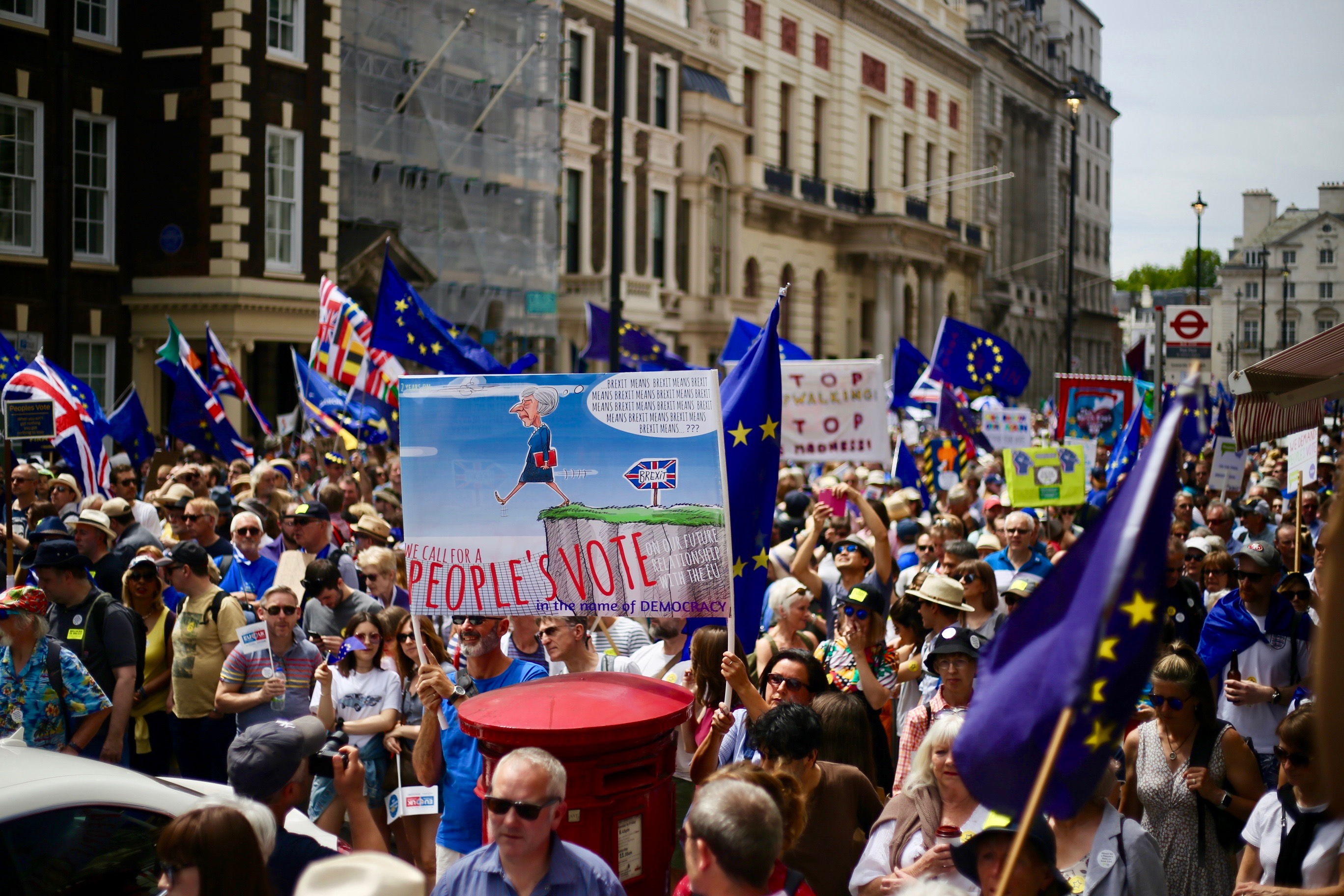The upcoming European Union referendum gives us the choice of clinging on to an increasingly and inexorably pro-corporate EU, or leaving the EU altogether on UKIP’s terms. In this article, Rupert Read argues that neither of these options are discernibly better than the other, and that given this deadlock, the best thing we can do is make the conscientious choice to spoil our ballot papers
As the EU referendum campaign grinds on, the thing that concerns me the most about what David Cameron achieved in his negotiations- and thus about the deal that we in Britain are going to be voting on in June- is that he has succeeded in making the EU worse. And Britain in it, worse.
Take the example of the exception he won for the City of London. It will keep Britain dependent on financial Ponzi-schemes and on being a tax haven.
Worse still- and the bit that concerns me above all in what Cameron got agreement on in Brussels- is the so-called ‘competitiveness’ part of the agreement. What that part of the agreement basically means is slashing regulations that do good things for us; regulations that do good things for workers, that do good things for the environment. Look in the months and years to come for the words ‘red tape’ to be used as an excuse for getting the very things that have in the past made the EU, despite its manifold flaws worthwhile.
So, what really concerns me is that we are being offered a choice between leaving the EU, with UKIP, or staying in an EU, which we’ve made not worth having, with the Conservatives. That’s why I now think we should reject both alternatives, and say if we were going to stay in the EU, we would only want to stay in an EU which is actually better, or at the very least no worse, than it was. That is unfortunately not on offer. I’ve come to the conclusion that this referendum is a set-up-job between an EU that is being made more neoliberal than ever and an even more right wing anti-EU faction. I say: a plague on both their houses.
Some say we should stay in the EU because of its emphasis (until, of course, the barriers started going up, recently…) on freedom of movement, relative to the alternative of not being in the EU. This doesn’t convince me. Most of the people who are concerned about the number of people migrating to this county are working-class people. They are worried that the differential between their wages and what the very richest people in this country are getting is growing, and that that is being fuelled by immigration- and the statistics support that concern. Mass immigration is driving growing income inequality in this country.
But isn’t there plenty of research showing migrants bring more benefits than costs to countries like the UK? No. There is indeed plenty of research showing this, if one focuses on measures such as GDP growth. But I favour a post-growth future. When one looks by contrast at the driving of inequality, then the evidence is on the side of those who see net economic and social harm rather than net economic and social from large-scale migration.
So on the one hand I am completely of the belief that we as a society have to be much more humane towards refugees. But at the same time we need to be sure we are listening to the reason why some are concerned about the EU: Free movement of labour is exactly what big business wants. Why else are the likes of Goldman Sachs funding the Remain campaign heavily? Why is ‘Remain’ supported by Richard Branson, by Ryanair boss Michael O’Leary, and indeed by the Confederation of British Industry?
The real trouble with the EU now is that it is becoming ever more a club for big business, and David Cameron’s negotiation has made it even more like that. The way that the EU operates overwhelmingly works in favour of big businesses and large farms, the kind of corporate interests who have tens of thousands of lobbyists in Brussels. The EU is in this sense a club for secretive and gargantuan corporate interests. Well actually, it has been for decades, and there’s zero evidence that it’s going to change: such an organisation, even if (as is true) it has some silver linings, is on balance just not worth defending.
Am I scared of what will happen if the Great British public vote to Leave? You bet. But I also think that under those circumstances there would be new political opportunity.
I worry that my many friends who are planning on voting Remain are ONLY operating from a position of fear. They are fighting a defensive rearguard action in defence of something that has become pretty much indefensible, because they are worried that what will follow will be even worse. Well it might be. But only if we let it be so.
I would like to see a Europe that is more ecological and a safer place to live in the future: safer vis-à-vis the level of chemicals in the environment; pollution levels; taking control of our climate back from the polluters. But it’s simply not on offer in this referendum ballot-paper choice.
That’s why, after a lot of soul searching, I’ve decided I’m going to spoil my ballot, for the first time in my life. I’m going to say no to this whole fake referendum that has been a setup job by Cameron to pit the Conservative party against UKIP, leaving Greens, Lib Dems, and Labour out of the picture.
Because some forced choices just aren’t worth having. This referendum is seeking to divide us, to force us to take sides.
Image Credit: Wikimedia
Rupert Read is reader of Philosophy at the University of East Anglia and Chair of Green House.





